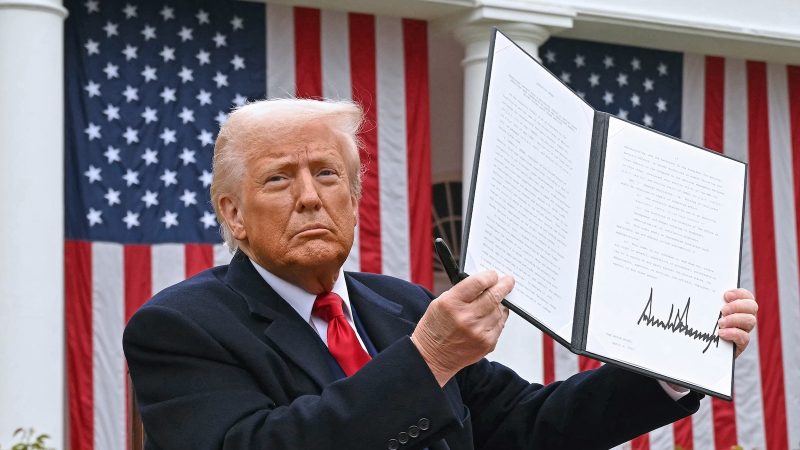
Early Thursday morning, steep 25% tariffs on imported vehicles into the United States went into effect, sending shockwaves through international markets. This drastic measure, announced just hours earlier by President Donald Trump, applies to cars, SUVs, minivans, cargo vans, and light trucks. Experts predict these tariffs could inflate car prices by thousands of dollars, impacting both new and used vehicle markets.
The White House defended the tariffs, framing them as crucial for safeguarding U.S. national security and economic strength. They argued that the American auto industry had been weakened by excessive imports. However, critics foresee significant consequences for U.S. consumers, who are almost certain to face higher prices for foreign vehicles. Adding to the concern, additional 25% tariffs on key imported auto parts, including engines and electrical components, are scheduled to take effect soon.
This auto tariff announcement followed Trump’s unveiling of a sweeping tariff plan, including a baseline tax on imports from all trading partners and steeper tariffs on countries that levy taxes on U.S. goods. He declared this action “Liberation Day,” claiming it would free the U.S. from foreign dependence. The plan includes a 34% tariff on goods imported from China and a 20% tariff on goods from the European Union, among others. These tariff levels are unprecedented since the Smoot-Hawley Tariff Act of 1930, a measure historians believe worsened the Great Depression.
The market reacted swiftly and negatively. Stock futures plummeted following the announcement, with the Dow Jones Industrial Average falling significantly. International leaders also voiced strong disapproval. China urged the U.S. to reverse the tariffs, while the European Union vowed to retaliate. Italian Prime Minister Giorgia Meloni called the tariffs targeted at the EU “wrong,” expressing concern about a potential trade war weakening the West. The situation has further strained relations with Canada and Mexico, despite their exclusion from this round of reciprocal tariffs.
The ramifications of these aggressive trade policies remain to be seen, but the immediate impact has been a significant market downturn and a surge of international criticism. The long-term economic consequences for the U.S. and the global economy are a major cause for concern.










